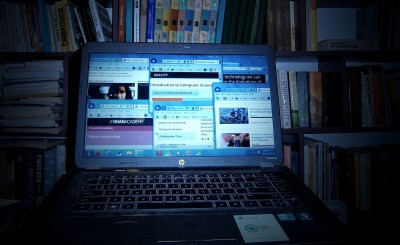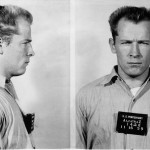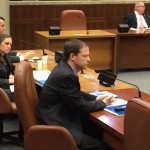
Harvard University and the Massachusetts Institute of Technology are facing two federal class action lawsuits filed by the National Association of the Deaf and four hearing-impaired students, claiming the schools’ online content, including massive open online courses, are discriminatory toward deaf and hard-of-hearing individuals because they do not have captions, according to a Thursday press release from the Civil Rights Education and Enforcement Center.
The lawsuits, filed in the U.S. District Court in Massachusetts, cites the Americans with Disabilities Act and the Rehabilitation Act of 1973, which allow equal access to educational materials in video or audio form, the release stated.
“Plaintiffs were attempting to access information on one or both of the university websites,” said Christine Griffin, the executive director of the Disability Law Center. “They are large enough and well known enough and very, very involved in the future of online information available to the public.”
Timothy Fox, executive director of the CREEC, said in the release that a sampling of videos by Harvard and MIT illustrate a problem with “inaccurate captioning, making them confusing and sometimes completely unintelligible.” In the release, the CREEC cites a video from U.S. President Barack Obama’s October 2009 visit to MIT. Obama said “… go down on the solar cell,” in the video, which was transcribed to “got down on dollars OK,” the release stated.
Boston University has hosted six MOOCs on the online platform edX, which was created by Harvard and MIT, according to BU’s Digital Learning Initiative website.
All audio and visual learning material included in BU’s MOOCs are closed captioned with interactive transcripts available to enrolled students, said Romy Ruukel, associate director of the DLI, in an email.
Lorraine Wolf, director of BU’s Office of Disability Services, said she was not aware of the filing against Harvard and MIT, but said it would be surprising if the schools weren’t offering captions for their content.
“Everyone is well aware of their requirements [as institutions] legally and ethically,” she said. “We have positioned ourselves to not be behind the eight-ball.”
Wolf said the online environment is a “new environment” in which to interpret the Americans with Disabilities Act.
“We have been working very hard,” she said. “All of the online media will be captioned in the not too distant future,” she said. “[It’s] important that we raise the awareness so that faculty understand[s] their responsibilities.”
Wolf said Disability Services is working on school-wide policy reform for the near future that would require all university multimedia materials to be accurately subtitled to ensure equal accessibility for hearing-impaired students.
Several students said online classes should be accessible for people with impaired hearing.
“Online course material should be accessible regardless of ability or disability,” said Aaryn Clerk, a sophomore in the College of Arts and Sciences. “It’s an easy thing for universities to do.”
Taylor Tessitore, a freshman in CAS, said three of her younger brothers were born with hearing loss and attend schools for the deaf in Maryland.
“You should make accommodations for all people with disabilities,” she said. “It [captioning] is a method of communication. It makes sense to have the option available. It’s not like we [BU] get a gold star for doing it. It’s just the right thing to do, which makes it ridiculous that Harvard and MIT don’t.”
Sonya Stanczyk, a freshman in the Sargent College of Health and Rehabilitation Sciences, said the fact that BU includes captions in their MOOCs is a symbol of its progressiveness and acceptance.
“You can’t exclude an entire group of people,” she said. “Everyone should have equal opportunity. It says we’re very aware of what everyone needs. I’m proud that we do it. It shows we’re aware.”




